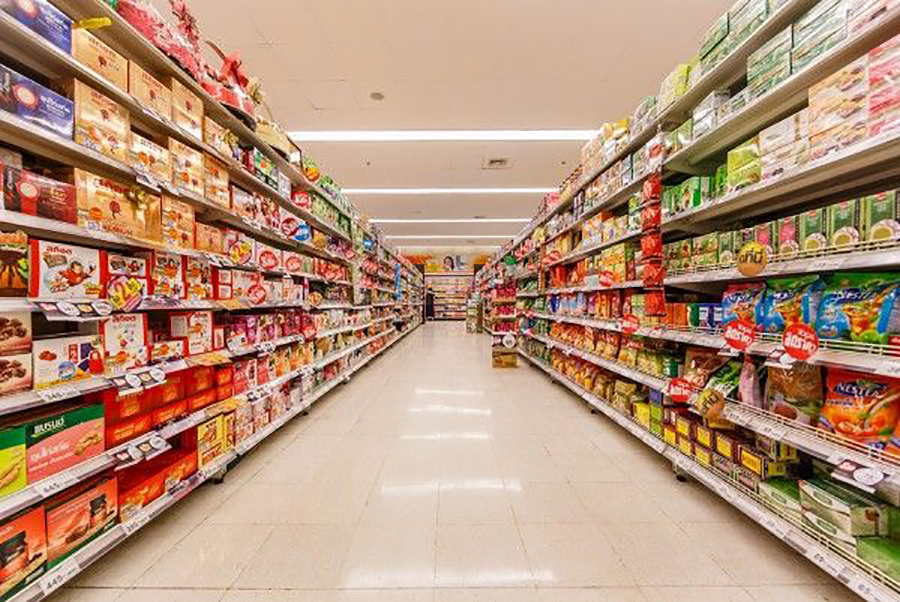Covid-19 Crisis : Government’s support will be vital for retail sector to navigate through choppy waters : Experts
By Retail4Growth Team | April 07, 2020
During a Webinar on Impact of COVID-19 on Indian Retail, hosted by RAI & TRRAIN, retail experts underlined recovery will be dependent on the Government’s support to the sector

 The Retailers Association of India in partnership with the Trust for Retailers and Retail Associates of India (TRRAIN) had organised a webinar on The Impact of COVID-19 On Indian Retail. The webinar, moderated by BS Nagesh, Founder TRRAIN, Chairman-RAI and Non-Executive Chairman Shoppers Stop, saw an insightful exchange of ideas between Kumar Rajagopalan, Chief Executive Officer, Retailers Association of India; Anuj Puri, Chairman, Anarock Consultants Pvt. Ltd.; and Pinakiranjan Mishra, Partner & Sector Leader, Retail & Consumer Products, Ernst & Young India.
The Retailers Association of India in partnership with the Trust for Retailers and Retail Associates of India (TRRAIN) had organised a webinar on The Impact of COVID-19 On Indian Retail. The webinar, moderated by BS Nagesh, Founder TRRAIN, Chairman-RAI and Non-Executive Chairman Shoppers Stop, saw an insightful exchange of ideas between Kumar Rajagopalan, Chief Executive Officer, Retailers Association of India; Anuj Puri, Chairman, Anarock Consultants Pvt. Ltd.; and Pinakiranjan Mishra, Partner & Sector Leader, Retail & Consumer Products, Ernst & Young India.
Following were the KEY TAKEAWAYS:
Consumer Behaviour Change:
1. There is a shift in consumer behaviour from offline shopping to online as people who were previously averse to online buying are now being compelled to explore online due to the restrictions in force. Organizations should closely follow consumer patterns and have an adaptive business model to stay relevant.
2. Another shift in buying behaviour, especially for millennials is that they may choose to purchase only what they really require and hence buy less than they would earlier.
3. While big-ticket purchases will be most likely get pushed to another 3 quarters, there may be an increase in small-ticket spending like eating out, buying apparel for feel-good post lockdown. This will be more like symbolic buying.
Impact on Businesses
1. Recovery will depend on the sector.
2. Commercial Real Estate sector may get hit with tenants getting into rent negotiations, size negotiations, consolidation of office spaces to tide over cash flow concerns. Retailers are likely to negotiate with mall owners/landlords on the revenue share model.
3. Mall owners/landlords wouldn’t want their existing occupants to leave and maybe more supportive.
4. Leadership will focus on cost efficiency than growth. Focus will be high on efficiency and achieving more with less. This means some functions may see consolidation, pilots will be put on hold and focus will be more on fundamentals.
5. Most leaders will take compassionate calls rather than a radical one. Hence, pay cuts rather than job cuts are more likely. Leaders need to be prudent and should not cut the necessary muscle else they will not be ready when the recession ends. Pay cuts will be most at the top-management levels, followed by middle management.
6. Compassion, empathy, honesty and transparency will be important. Cuts can be reverted if targets are achieved in March 2021.
7. Discretionary spending like entertainment, travel, admin costs are more likely to be cut than people costs.
8. Organizations that are already highly leveraged are going to face the toughest challenges to get back on feet.
9. First priority will be People. It’s important to communicate with the employees, address their nervousness and anxiety and keep in touch. The short term critical thinking is required- mission-critical ops. Second priority will be engaging the customers, how to support our customers and keep communicating with the customers.
10. Collaboration will be key to recovery. Collaboration in areas such as compliance within stores, collaboration for revenues e.g. for distribution and delivery and collaboration for costs—real estate.
11. It will be important to forget the lessons learned during the crisis and revert to old ways of working. The learnings should also be applied in the future.
Government support
1. Recovery will be dependent on the Government’s support to the sector. It may take a minimum of 3 quarters to stabilize. In the absence of major support, as many as 20-25% of retailers may be out of business or will need dire financial infusion to stay afloat.
2. Government will have to take a backseat on fiscal prudence & take bold steps to ensure that this sector as well as the economy, in general, is afloat.
3. Government should focus on giving more money in the hands of the consumer, which will automatically come back in the system as consumer spends increases.
4. India has released 1% of GDP. Following the example of other countries is important, which means releasing 3-4% GDP, which will help recover within 6-9 months. Stimulus from the government can be a big push.








